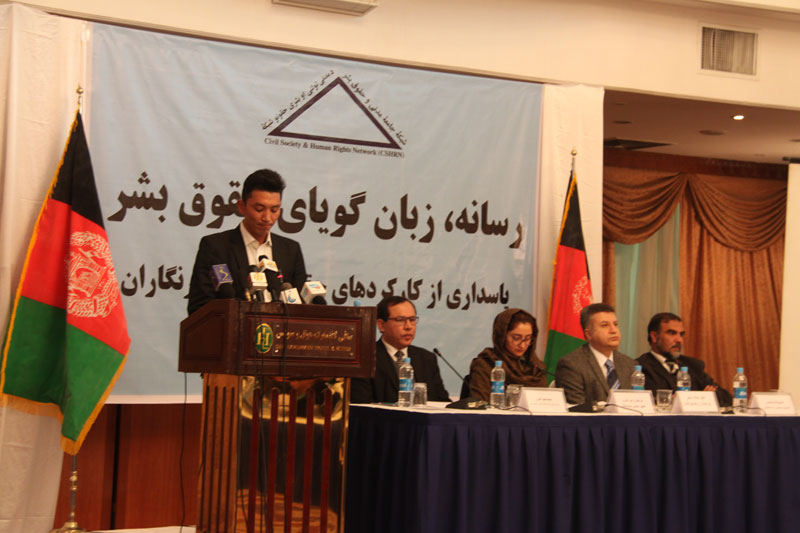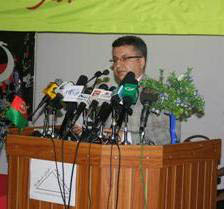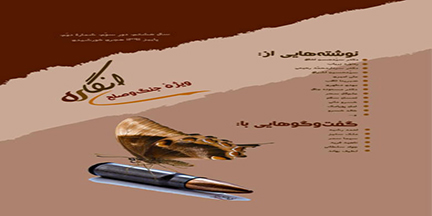Conference on celebrating the International Human Rights Day and Appreciating the Human Rights works of Journalists
Dec 10th is the International Human Rights Day, celebrating this day is very important and meaningful especially to human rights defenders and activists. Dec 10th, is the day of commemorating the difficult experiences of global campaign for human rights ideals. Commemorating the importance of human rights, appreciating the human rights activities of civil players, praising and commending the position of human rights victims and reminding the government its human rights responsibilities will certainly pave the way for realization and expansion of human rights values and principles in the country. Hence, CSHRN celebrated this day by conducting a conference with the presence of civil society representatives and journalistsin the capital Kabul. The program was commenced with reciting some verses of the Holly Quran by Mr. Mohammad Sadiq Ahmadi;afterwards, Mr. Naim Nazari CSHRN’s executive director has opened the first part of the program with his valuable speech. After that, the panel members of the program, Ms. Farkhunda Zahra Naderi, member of the house of representatives, Doctor Malek Sitez, researcher in international affairs, and Sediqullah Tawhidi, Head of Nai supporting open media in Afghanistan, have respectively addressed their speech on the «role of media in promoting Human Rights», «Civil Rights, the cornerstone of Human Rights» and «Human Rights Situation of Journalists in Afghanistan». The second part of the program was dedicated for presenting the appreciation letters of some correspondents who were very active in reporting human rights issues. The correspondents who were presented appreciation letters by CSHRN were: Ms. Shakila Ibrahimkhail, Ms. Saliha Sadat and Sayed Azim Arash, from Tolo TV network, Mr. Sajad Mohammadi and Nazruddin Moslih, from 1TV, Ms. Farahnaz Frotan from Aryana News, Mr. Ayoub Arween from BBC radio, Mr. Akbar Rustemi from Hashte Subh Daily, Ms. Pashtana Arabzay from Shamshad TV and Mr. Amirshah Joya from Arezo…






